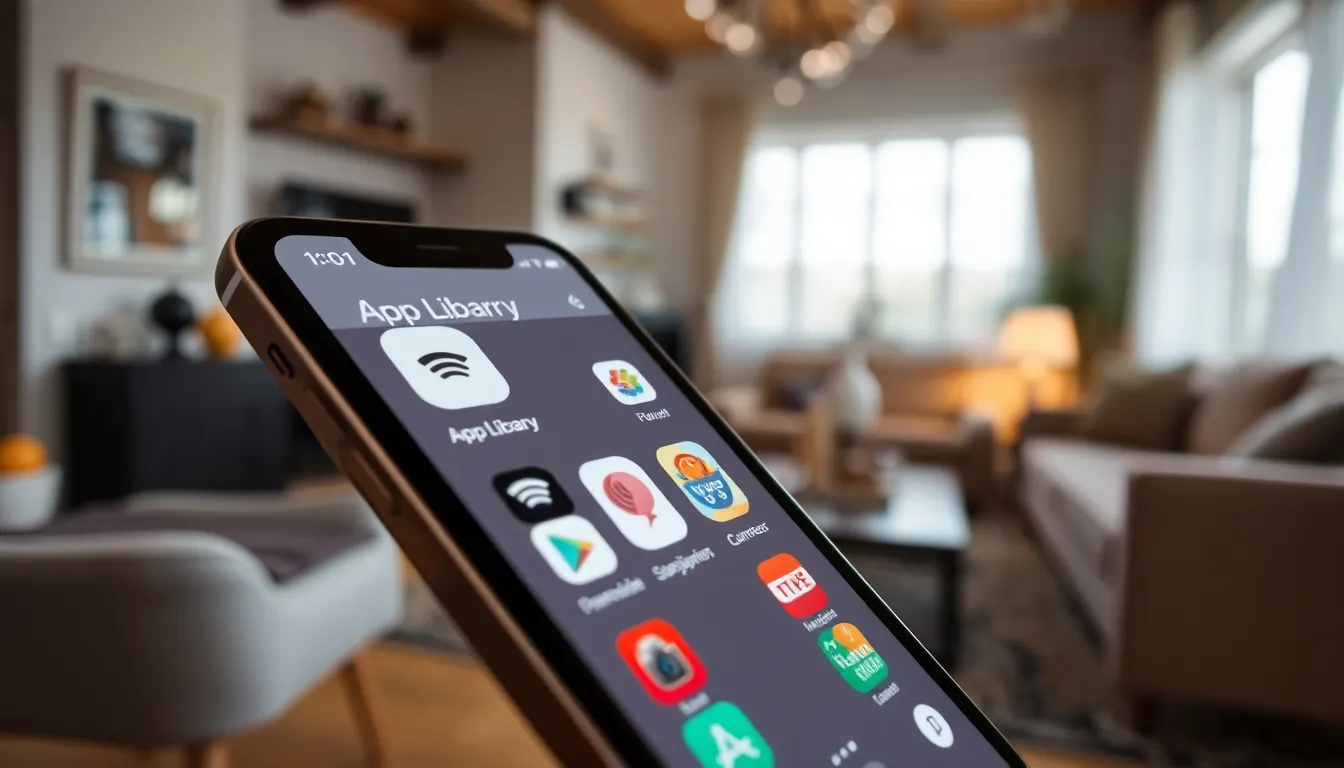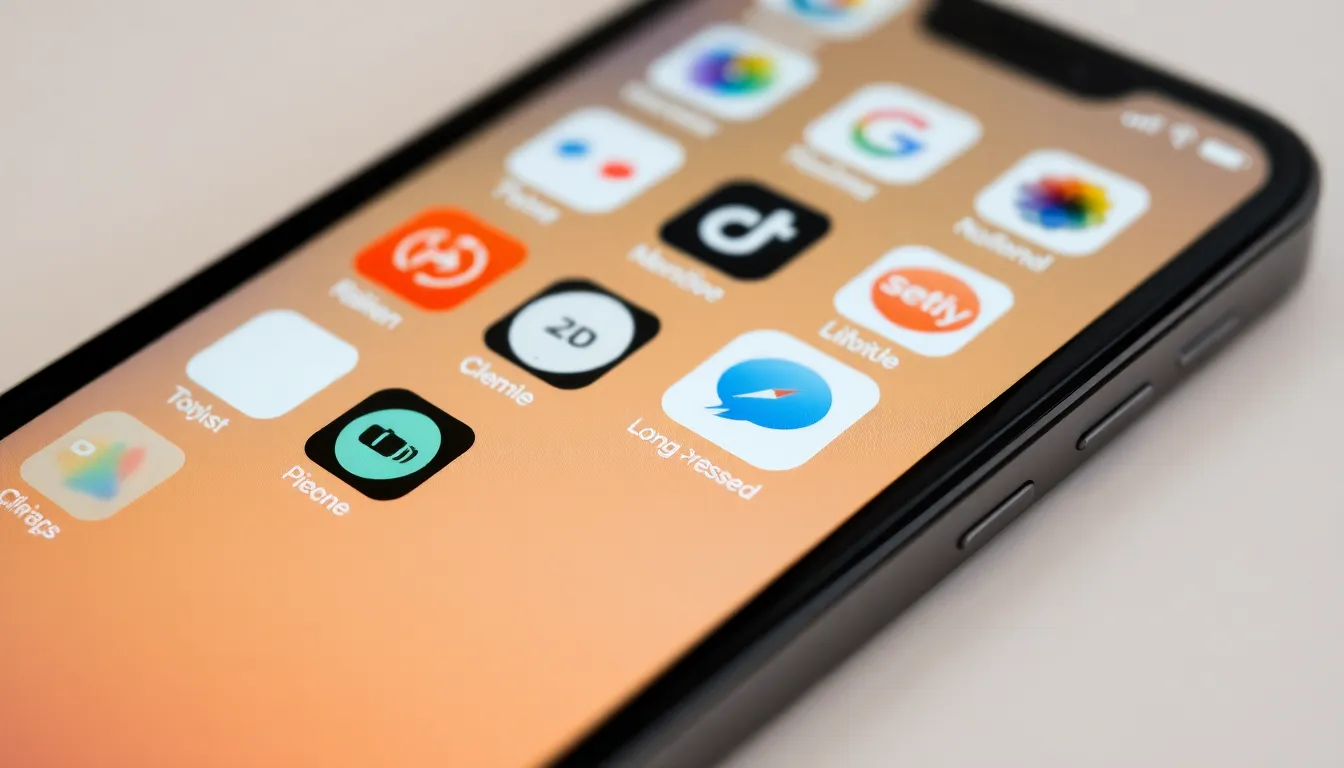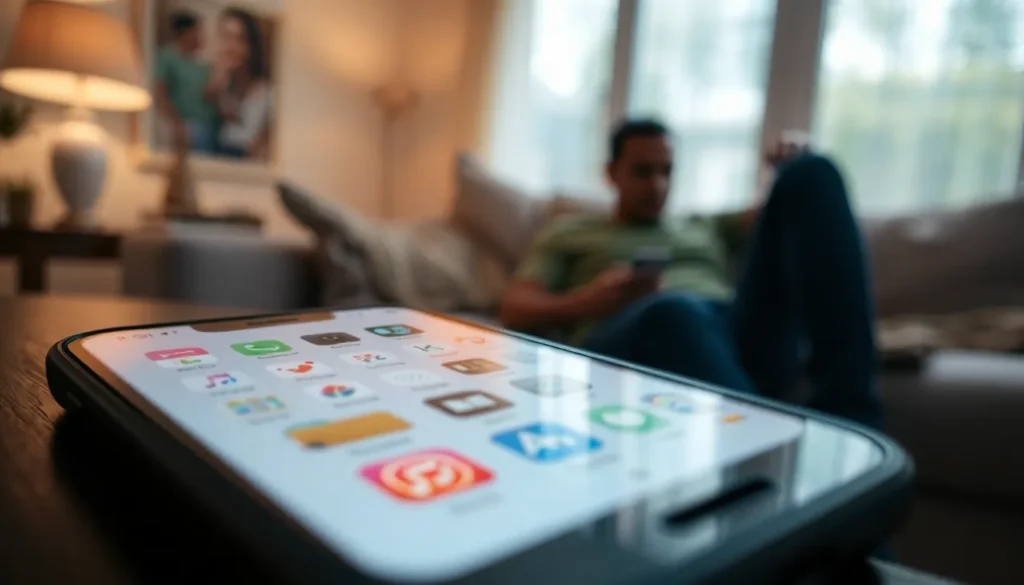Table of Contents
ToggleIn a world where privacy is king, hiding apps on an iPhone can feel like a secret agent mission. Whether it’s to keep those embarrassing games away from prying eyes or to declutter the home screen, many iPhone users find themselves asking, “Can I really hide these apps?” Spoiler alert: you can, and it’s easier than dodging your aunt’s questions about your love life.
Imagine the freedom of swiping past that cringe-worthy app without a second thought. With a few simple tricks, your iPhone can become a fortress of discretion. Say goodbye to clutter and hello to a sleek, organized interface that even your most judgmental friends will envy. Ready to unleash your inner tech ninja? Let’s dive into the world of app concealment and discover how to keep your digital life just a little more private.
Overview of App Hiding on iPhone
Hiding apps on an iPhone plays a crucial role in enhancing user privacy and creating an organized home screen. Users often seek methods to conceal apps for various reasons, ranging from personal confidentiality to decluttering their digital space.
Importance of Privacy
Privacy is vital for iPhone users wanting to safeguard personal information. Hiding specific apps helps prevent unwanted access, especially in shared environments. Maintaining privacy provides peace of mind and assurance that sensitive data remains secure. Ensuring a private digital atmosphere strengthens user confidence in how their information is handled. Protecting privacy helps individuals feel more in control of their mobile experience.
Common Reasons to Hide Apps
People hide apps for numerous reasons. Privacy concerns often lead individuals to obscure messaging and social media applications. Decluttering the home screen encourages better organization and improves device usability. Focus on essential apps fosters a more efficient smartphone experience. Personal preferences may also drive the desire to hide certain apps from others. Protecting financial or sensitive information remains a priority for many users looking to maintain confidentiality.
Methods to Hide Apps on iPhone


Hiding apps on an iPhone offers users a streamlined and private experience. Several methods exist to achieve this effectively.
Using the App Library
The App Library automatically organizes apps, making them easy to access without cluttering the home screen. Users can swipe left past the last home screen page to find it. An app can be hidden by removing it from the home screen while retaining access in the App Library. To do this, long-press the app icon, select “Remove App,” and then choose “Remove from Home Screen.” This method allows for an organized appearance while maintaining functionality.
Creating Folders
Creating folders is another effective way to hide apps. Users can simply drag one app over another to form a folder. Naming the folder creatively can enhance the disguise of the contained apps. Inside the folder, users can place multiple applications, reducing visibility on the home screen. To further obscure the folder, place less frequently used apps inside or keep it on a less prominent home screen page.
Hiding Apps with Screen Time
Screen Time settings provide an option to hide apps, adding another layer of privacy. By navigating to Settings, tapping on “Screen Time,” and then selecting “Content & Privacy Restrictions,” users can limit access to specific apps. After activating the setting, selecting “Allowed Apps” will let users toggle visibility for individual applications. This method ensures that sensitive apps remain unseen while still being accessible if needed.
Third-Party Solutions
Third-party solutions offer additional options for hiding apps on an iPhone, providing users with alternative methods to maintain privacy and organization.
App Hiders and Launchers
App hiders and launchers represent popular tools for concealing applications. Many of these apps allow users to create secure vaults where they can store hidden apps. Users may find that some of these app launchers provide customizable interfaces, enabling unique organization styles. Specific options can also include password protection, ensuring only authorized access. They create an additional layer of security on devices and can enhance the overall experience.
Risks of Using Third-Party Apps
Using third-party apps isn’t without risks. Privacy concerns frequently arise, especially regarding data handling and permissions. Some of these apps may require extensive access to personal information, which can lead to potential security vulnerabilities. Users should also consider the reliability of these apps; not all third-party solutions pass rigorous security standards. In some cases, poorly designed apps might cause system instability or conflict with existing apps. Choice of solution necessitates careful evaluation of associated risks.
Limitations of Hiding Apps on iPhone
Hiding apps on an iPhone offers benefits, but it comes with limitations that users should know. Certain essential system apps, like Phone and Messages, cannot be hidden at all. Standard applications included in the iOS are unmovable and always accessible due to their core functionality.
What Can’t Be Hidden
Important system apps remain visible on the home screen despite efforts to hide others. Core applications such as Safari, Mail, and Settings remain prominent, ensuring users can always reach essential features. Non-removable apps guarantee accessibility but can clutter the interface. Moreover, deleting them from the home screen doesn’t eliminate their presence from the App Library, which still shows all applications and makes them accessible through search.
Security Concerns
Using third-party apps to hide apps raises privacy issues that users must consider. Some of these applications may not follow strict data protection standards, potentially exposing personal information. Security vulnerabilities can arise from permission requests, which may include unwanted access to photos and contacts. Furthermore, the installation of unverified apps can lead to system instability and unauthorized data access. Evaluating app legitimacy becomes crucial to maintain security while achieving desired privacy.







